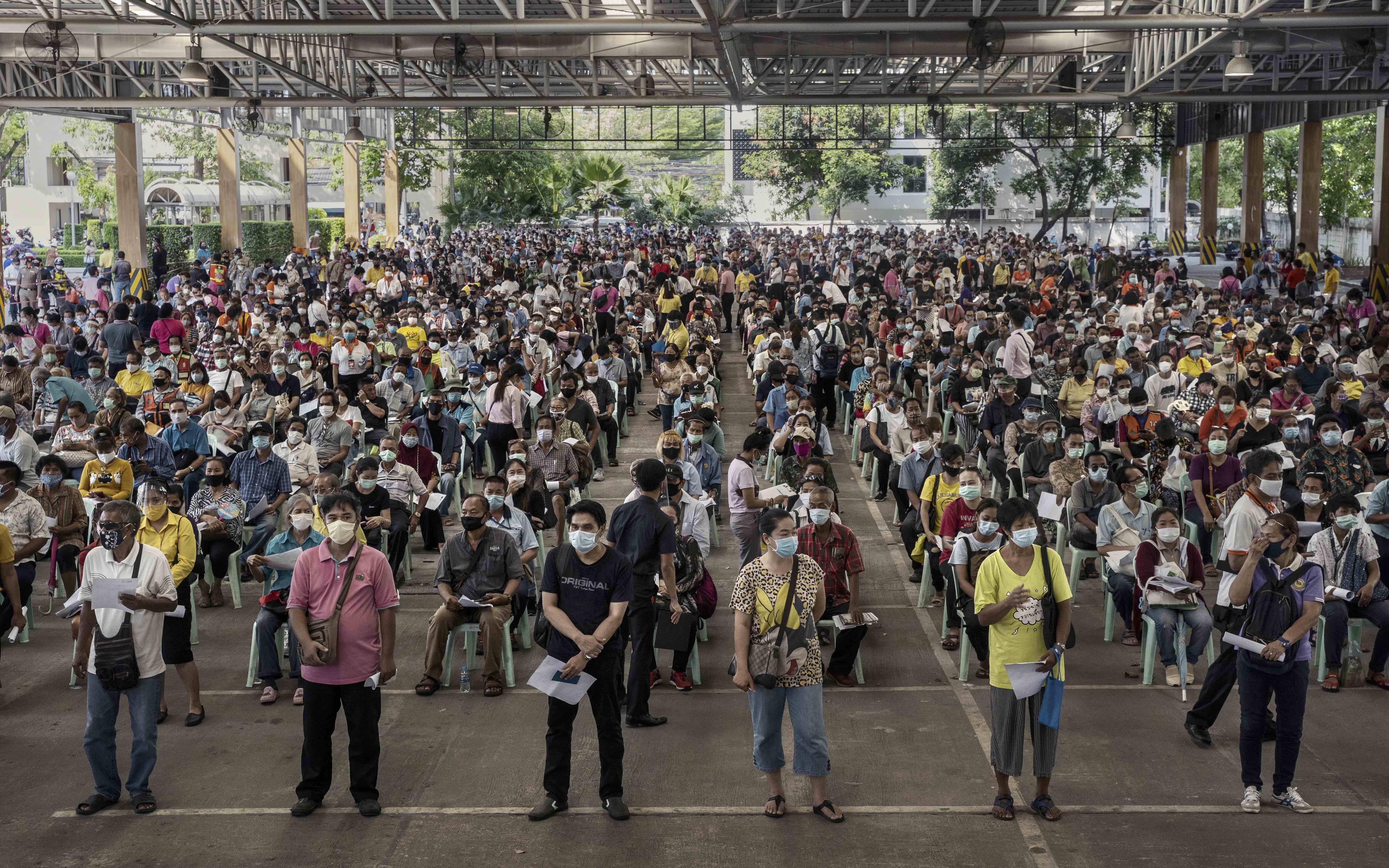The COVID-19 pandemic has presented countries with enormous policy challenges. Policymakers have had to balance limited resources between health, food systems, and economies in a continually evolving public health emergency and an associated recession. Low-income countries have faced especially difficult choices because of their limited budgets and administrative capacity.
As planetary boundaries are stretched and environmental and social stresses increase, we can anticipate multiple and more frequent shocks that will require fast, agile, and well-implemented policy responses. To understand how governments can prepare for future shocks, Chapter 2 of IFPRI’s 2021 Global Food Policy Report assesses policy responses to the pandemic and the lessons they offer to improve the long-term resilience of food systems.
This research addresses three questions: How have governments responded to the COVID-19 pandemic? What has determined the success of policy responses? And what policies can foster resilient food systems moving forward?
How have governments responded to the COVID-19 pandemic?
IFPRI researchers categorized policy responses into three phases: Emergency response, recovery, and resilience. Emergency response measures included lockdowns, urgent interventions to control virus transmission, and rapid support to severely affected households and businesses. In the recovery phase, governments make more targeted investments in hard-hit sectors and implement vaccination plans. Most countries are still in the response and recovery phases, but some are beginning to rebuild, focusing on longer-term strategies for more resilient food, economic, and health systems.
The unprecedented nature of the pandemic meant that policymakers had little evidence to draw on during initial stages. In addition, impacts differed greatly between countries, so what worked in one place was not guaranteed to work in another. For example, countries like Egypt that rely on tourism and remittances were especially hard-hit, while countries with high social compliance with regulations like Rwanda were able to enforce targeted lockdowns and move quickly into recovery. Some countries faced concurrent crises, such as Honduras with hurricanes Eta and Iota, making policy decisions even more difficult with limited funding and overwhelmed health systems. To chart a path forward towards more resilient food systems, we must look across these varying contexts to understand what has determined the successes and failures of policy responses.
What has determined the success of policy responses?
The most successful policies were implemented in resilient policy systems, where decision makers respond to crises in informed, timely, and cohesive ways that build credibility and confidence among citizens. There are three broad features of resilient policy systems: Adaptability; coherence and coordination; and efficacy of implementation and enforcement. For all these features, the quality of existing delivery systems was an important determinant of success.
Adaptable countries supported innovation to keep markets working while reducing disease transmission. In Ghana, drone technology was deployed in rural areas to speed up the transport of medical supplies and samples for coronavirus testing. In East Africa, the Regional Electronic Cargo and Driver Tracking initiative was introduced to monitor drivers for COVID-19 while reducing long wait-times at borders. Creative ideas were rolled out and scaled up quickly in countries with business environments that enabled partnerships with the private sector. Digital infrastructure was also important, but so was good technology governance around privacy, data-sharing, and unequal access.
Coherent and well-coordinated policies require three types of coordination: Horizontal, vertical, and temporal. Many governments focused initially on horizontal coordination across sectors by forming inter-ministerial response teams. Vertical coordination across different levels of government often was more challenging. This was especially so in countries with high degrees of political polarization or subnational autonomy over health systems, particularly in federal countries. Temporal coordination, i.e, across time, has also been extremely difficult. In India, for example, the prime minister announced lockdowns in March 2020 with only four hours’ notice, and transport systems were unprepared to meet the needs of millions of migrants returning to rural areas, contributing to a surge in coronavirus infections.
Successful implementation and enforcement of policies requires both strong administration and citizen trust in government. Strong administrative systems are characterized by sufficient human and financial resources, mechanisms for oversight and accountability, and independent public institutions. During the pandemic, weak administrative systems led to cash transfer and food relief policies being undermined by cases of government corruption and hoarding. Citizen trust in government erodes when relief policies fail, which can lead to non-compliance with lockdowns or refusals to be vaccinated.
What policies can foster resilient food systems moving forward?
COVID-19 led to multiple disruptions across sectors, unprecedented in recent decades. However, there are lessons and principles that countries can apply to ensure that they are better equipped to respond to future crises. As they move into the pandemic’s rebuilding phase, they can employ data collection to understand the interplay of health, economic, and social policy actions to support fast, evidence-based decisions. They can also improve their public delivery systems to quickly scale up or adapt social protections for the poor and vulnerable.
To encourage private innovation in food systems, particularly by small and medium sized enterprises, countries can develop more enabling business environments with flexible food trade regulations. These enabling environments should include strong technology governance to ensure that digital tools are not exploitative and equitably accessed. Finally, governments can develop processes for improved coordination and administration, so that policies are well-implemented vertically, horizontally, and temporally, in ways that build citizen trust.
The COVID-19 pandemic exposed the fragilities of our food systems. However, with the right policy changes, we can make these systems stronger, more adaptable, and more sustainable moving forward.
John McDermott is Director of the IFPRI-led CGIAR Program on Agriculture for Nutrition and Health (A4NH); Danielle Resnick is a Senior Research Fellow with IFPRI’s Development Strategy and Governance Division and leads IFPRI’s Governance theme; Nichola Naylor is a Research Fellow with the London School of Hygiene and Tropical Medicine; Jessica Wallach is an IFPRI Communications Intern and a Master’s student in International Agricultural Development at the University of California, Davis.







